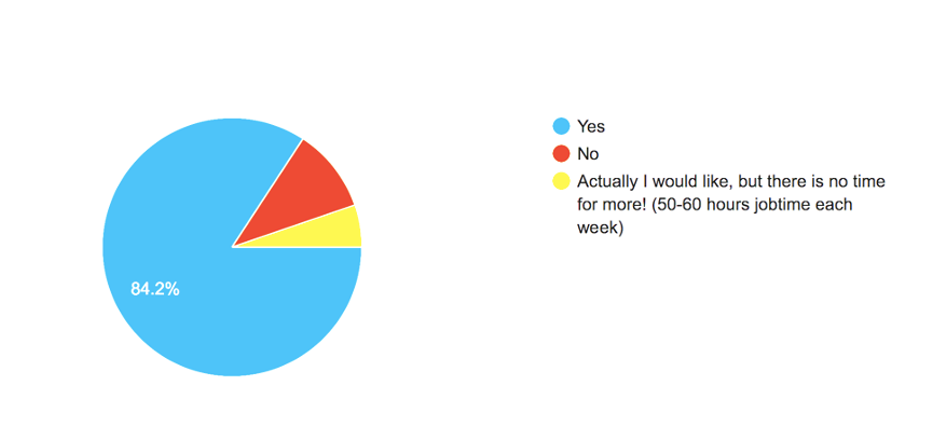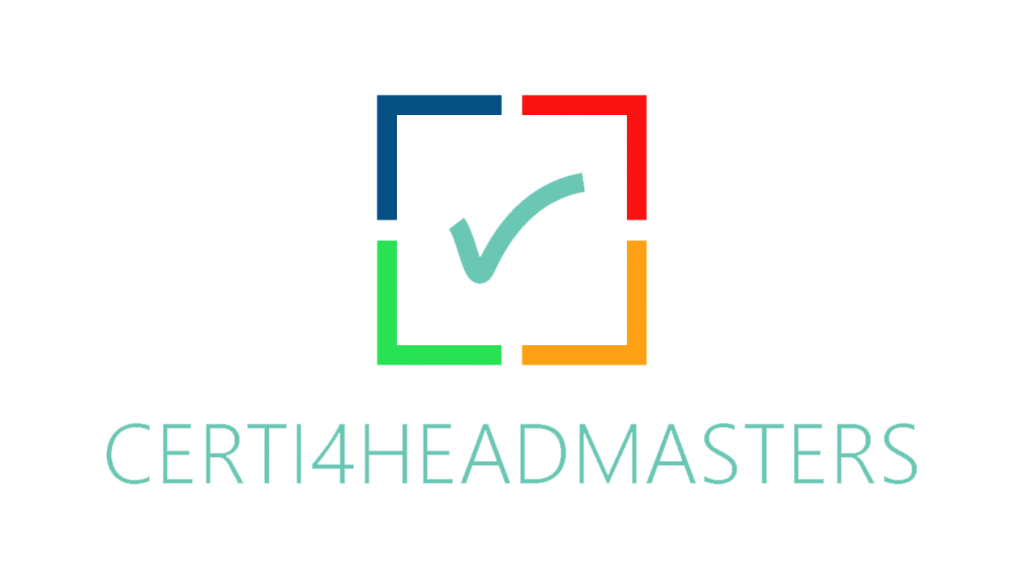We have conducted three surveys across Europe based on teacher support, recruitment & selection and induction of teacher and headmaster training. These surveys were analysed, and the results were presented during our transnational meetings in Bratislava, Berlin and Brussels. Here you can find the highlights from the analysed results and most interesting findings:
Surveys
Schools work well with their new teachers.
How would you rate the impact of the (new) teachers support in your school?
- Low (1) – 5%
- Some (2) – 7,5%
- Good (3) – 37,5%
- Very good (4) – 37,5%
- Excellent (5) – 12,5%
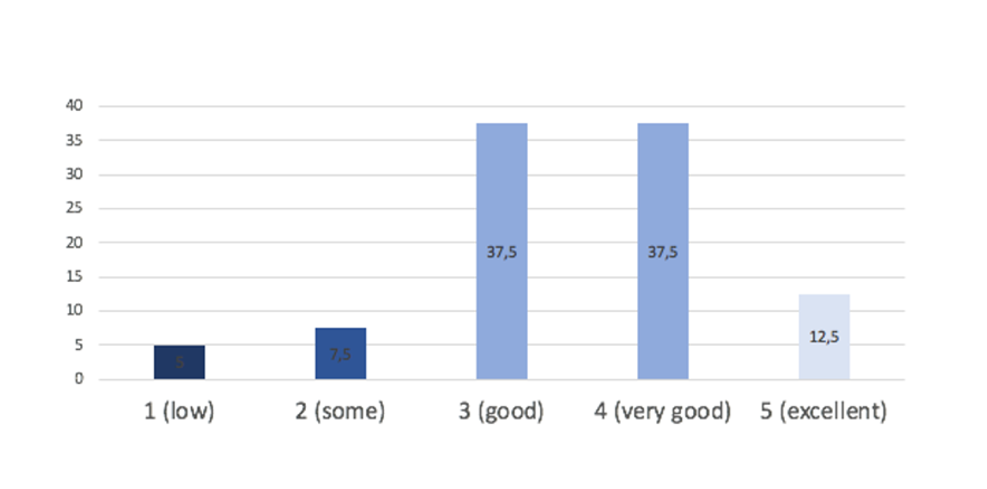

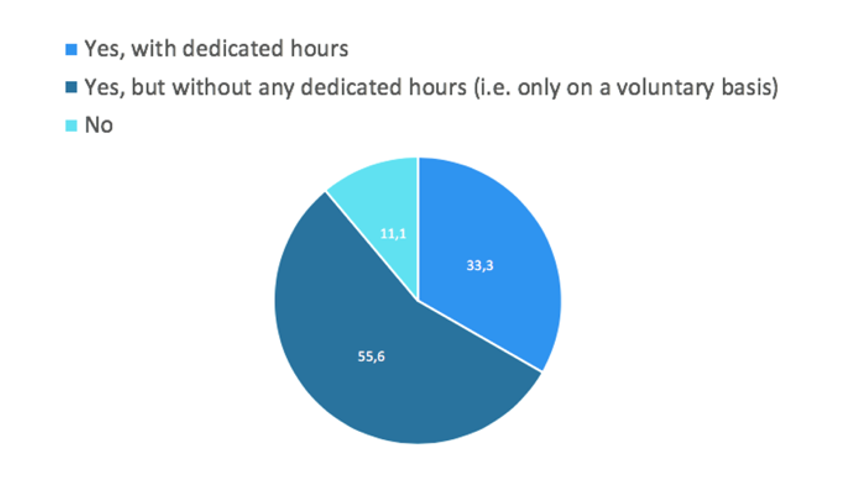

Teacher support is dominantly planned
Does your school organize any kind of support (e.g. mentoring, peer- learning) for teachers?
- Yes, with dedicated hours – 33,3%
- Yes, but without any dedicated hours (only on voluntary basis) – 55,6%
- No – 11,1%
Teachers have very clear further needs
- dialogue about children with special needs
- co-building didactical tools
- a big library at the teachers’ room with specialized books about education
- gestion of adolescents
- mentor sessions
- support and coaching for all teachers not only the new ones
- further exchanges with other schools
- psychological service
- less time in class and marking papers and more time in further education
- any time available social worker is very important and needed
- job shadowing / learning communities
- tools for the management for a class where the children are difficult
- creating a plan for new teachers in the induction stage
- a master class of a well-known teacher and more methodological literature to school
- support of civic organizations (NGO)
- everything that prevents professional burnout
- tutoring
- more peer support, teaching teams and observations in these teams
- evaluation in the teams
- solving the issues related to the wages
- spread the concept of teachers as learners
- financial aid
- personal coaching
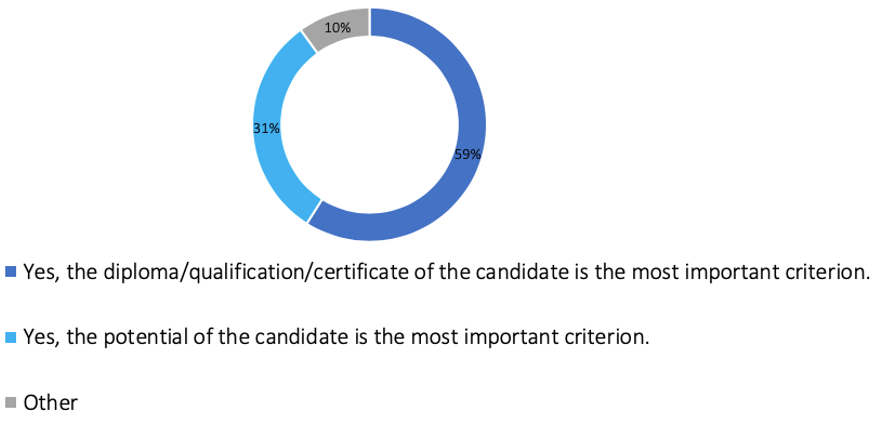

Qualification is the most important selection criterion
Do you have a set of main criteria according to which you choose/rate a candidate applying for a teaching position?
- Yes, the diploma/qualification/certificate of the candidate is the most important criterion. – 59%
- Yes, the potential of the candidate is the most important criterion. – 31%
- Other – 10%
Schools are not satisfied with their recruiting and selection
How would you rate your teacher recruiting and selection process?
- 2 – 18%
- 3 – 73%
- 4 – 9%
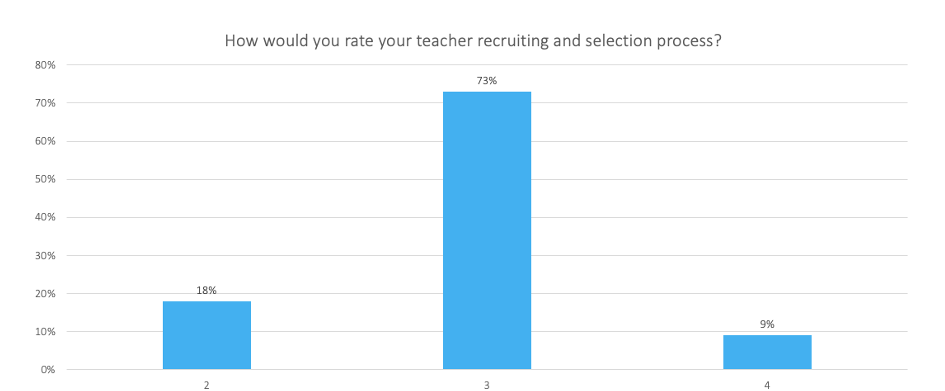

However, it is better with induction
How would you rate the process of induction of new teachers in your school?
- 3 – 46%
- 4 – 36%
- 5 – 18%


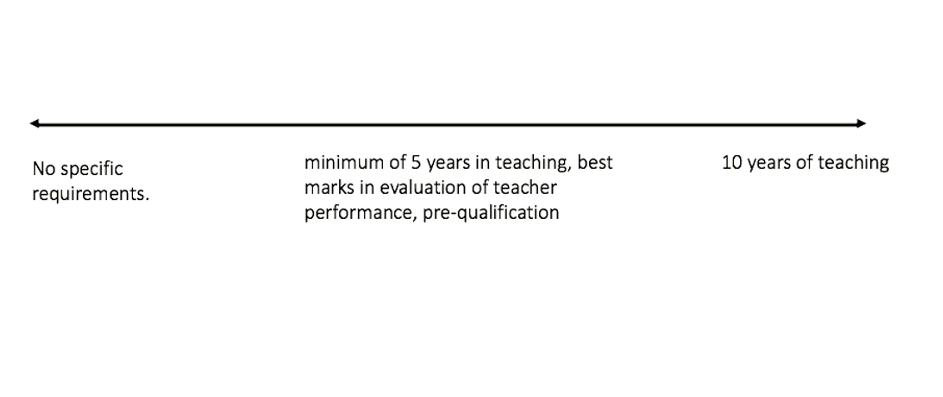

Criteria for becoming a headmaster drastically vary across the countries
- from: No specific requirement
- trough: Minimum of 5 years in teaching, best marks in evaluation of teacher performance, pre-qualification
- to: minimum of 10 years teaching
Headmasters are dominantly not satisfied with their training
- 1 – 15,8%
- 2 – 15,8%
- 3 – 47, 4%
- 4 – 15,8%
- 5 – 5,3%
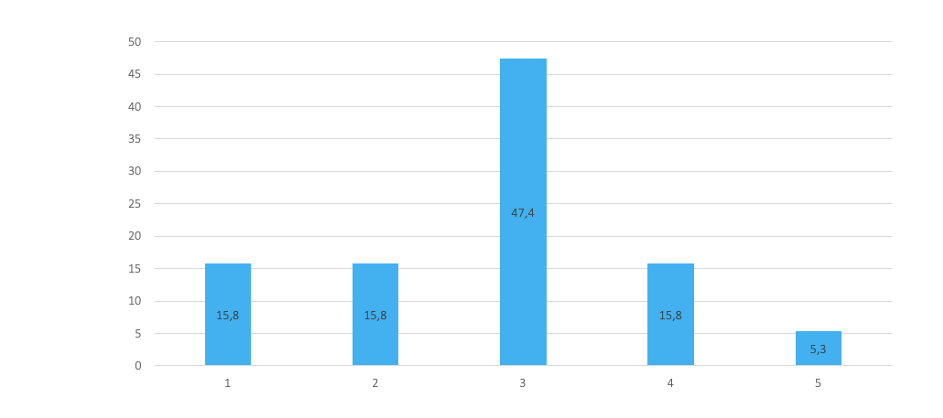

And they know exactly what they want more of:
- exchange of experiences with other headmasters; networking
- school law
- more practical cases
- Improving management and Human Resources Skills (as in leading teams)
- mentor skills, coaching skills
- group motivation
- supervisions
- job shadowing
Vast majority would be interested in following a training in another European country:
- Yes – 84,2%
- No
- Actually, I would like but there is not time for more!
